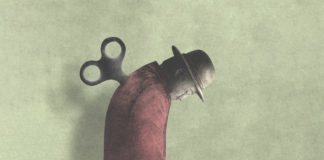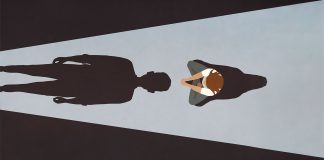Procrastination: Why we procrastinate and how to win the war on ourselves
Procrastination is self-harm, psychologist Piers Steel says. A kind of self-harm that we can become addicted to if we do not detect the reasons behind it and especially the effective strategies to counter it.
The trouble with alcohol
Elspeth Muir’s brother, Alexander, died from drowning. It was 2009, and he had just turned 21. He died from drowning, but his death “was not foreshadowed by his love of water except that it explains why he was near a river, alone, with a blood-alcohol content of almost 0.25. My brother died because he was drunk, and because the drink made him stupid.”
Why is everyone so angry all the time?
"Why is everyone so angry about everything all of the time?" That was the title of a Sydney Morning Herald article by journalist and academic Waleed Aly. The question was originally tweeted by Sally, a viewer of the BBC’s Question Time.
The angry Christian: How can we free ourselves from destructive anger?
A man is about as big as the things that make him angry – Winston Churchill
Scars that heal
He had made the mistake of asking the doctors for a mirror. Terrified, he saw a monster reflected in it. Lying on the hospital bed, after the doctor left, he pulled on the tube he thought was keeping him alive. He had no reason to live.
Avicii: true stories
With his hands clasped on the barbell, the superstar stares blankly and tells his personal trainer that his body needs time to adjust because he has been suffering from anxiety for a long time. Because of this, his body does not differentiate between cardio and panic. Two years later, on April 20th, 2018, the lifeless body of the famous DJ Avicii was found...
The homeless influencer. An open ended story
Joaquín Carmona had 16,000 followers on Twitter, and his posts about Spanish athletics were appreciated even by sport professionals. None of his followers had ever met him in person, and when silence fell on his account for three months, people began to look for him, write to him and ask who Carmona really was.
The Kiss of Judah | What remains after trust has been betrayed?
The first time Judas's kiss was heard was in the Garden of Gethsemane. However, its echo is repeated whenever the trust of an unsuspecting soul is betrayed. Betrayal, especially when it wears the mask of faith, tears apart the moral fabric of those who are wounded by it.
Forgiveness heals the one who forgives
Everyone thinks forgiveness is a lovely idea until he has something to forgive. – C.S. Lewis
Resilience to shame
Where there's fear, there's shame, says a Romanian proverb. What the proverb doesn't say (and what many of us don't know) is that the folds of shame hide a multitude of emotional problems and dysfunctional relationships that are passed down from one generation to the next.
Dangerous closeness: How to recognise and prevent abuse
Sexual abuse follows a predictable pattern, but unfortunately this pattern is not widely known. It is essential to recognise its early signs and profound effects for both protection and healing.
A second chance: faith in the forgiveness that transforms us
Many years ago, while I was still in high school, our Romanian language and literature teacher assigned us the task of writing a framed story, complete with characters and a plot of our choosing.
Logotherapy and the meaning that brings healing
Happiness must come naturally – and this is true for success: you must let it happen simply by not obsessing over it.
The great failure of too high expectations
From the first positive pregnancy test, parents often build up expectations for their baby. And as the little one grows, so do the expectations—emotional, cognitive, moral and academic. While it's only natural that this should be the case, as children need to be set standards, parents' expectations can often turn out to be a double-edged sword.
The meaning of life in moments of uncertainty
We are leaving. Even if we were not supposed to, we chose to and it is happening. We are moving again. It is the eighth time in eleven years of marriage.


























